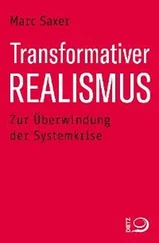Mark Fisher - Capitalist Realism - Is There No Alternative?
Здесь есть возможность читать онлайн «Mark Fisher - Capitalist Realism - Is There No Alternative?» весь текст электронной книги совершенно бесплатно (целиком полную версию без сокращений). В некоторых случаях можно слушать аудио, скачать через торрент в формате fb2 и присутствует краткое содержание. Жанр: Старинная литература, на английском языке. Описание произведения, (предисловие) а так же отзывы посетителей доступны на портале библиотеки ЛибКат.
- Название:Capitalist Realism: Is There No Alternative?
- Автор:
- Жанр:
- Год:неизвестен
- ISBN:нет данных
- Рейтинг книги:4 / 5. Голосов: 1
-
Избранное:Добавить в избранное
- Отзывы:
-
Ваша оценка:
- 80
- 1
- 2
- 3
- 4
- 5
Capitalist Realism: Is There No Alternative?: краткое содержание, описание и аннотация
Предлагаем к чтению аннотацию, описание, краткое содержание или предисловие (зависит от того, что написал сам автор книги «Capitalist Realism: Is There No Alternative?»). Если вы не нашли необходимую информацию о книге — напишите в комментариях, мы постараемся отыскать её.
Capitalist Realism: Is There No Alternative? — читать онлайн бесплатно полную книгу (весь текст) целиком
Ниже представлен текст книги, разбитый по страницам. Система сохранения места последней прочитанной страницы, позволяет с удобством читать онлайн бесплатно книгу «Capitalist Realism: Is There No Alternative?», без необходимости каждый раз заново искать на чём Вы остановились. Поставьте закладку, и сможете в любой момент перейти на страницу, на которой закончили чтение.
Интервал:
Закладка:
then today's society must appear post-ideological: the prevailing ideology is that of cynicism; people no longer believe in ideological truth; they do not take ideological propositions seriously. The fundamental level of ideology, however, is not of an illusion masking the real state of things but that of an (unconscious) fantasy structuring our social reality itself. And at this level, we are of course far from being a post-ideological society. Cynical distance is just one way ... to blind ourselves to the structural power of ideological fantasy: even if we do not take things seriously, even if we keep an ironical distance, we are still doing them.
Capitalist ideology in general, Zizek maintains, consists precisely in the overvaluing of belief -in the sense of inner subjective attitude -at the expense of the beliefs we exhibit and externalize in our behavior. So long as we believe (in our hearts) that capitalism is bad, we are free to continue to participate in capitalist exchange. According to Zizek, capitalism in general relies on this structure of disavowal. We believe that money is only a meaningless token of no intrinsic worth, yet we act as if it has a holy value. Moreover, this behavior precisely depends upon the prior disavowal -we are able to fetishize money in our actions only because we have already taken an ironic distance towards money in our heads.
Corporate anti-capitalism wouldn't matter if it could be differentiated from an authentic anti-capitalist movement. Yet, even before its momentum was stalled by the September 11th attacks on the World Trade Center, the so called anti-capitalist movement seemed also to have conceded too much to capitalist realism. Since it was unable to posit a coherent alternative politicaleconomic model to capitalism, the suspicion was that the actual aim was not to replace capitalism but to mitigate its worst excesses; and, since the form of its activities tended to be the staging of protests rather than political organization, there was a sense that the anti-capitalism movement consisted of making a series of hysterical demands which it didn't expect to be met. Protests have formed a kind of carnivalesque background noise to capitalist realism, and the anti-capitalist protests share rather too much with hyper-corporate events like 2005's Live 8, with their exorbitant demands that politicians legislate away poverty.
Live 8 was a strange kind of protest; a protest that everyone could agree with: who is it who actually wants poverty? And it is not that Live 8 was a 'degraded' form of protest. On the contrary, it was in Live 8 that the logic of the protest was revealed in its purest form. The protest impulse of the 60s posited a malevolent Father, the harbinger of a reality principle that (supposedly) cruelly and arbitrarily denies the 'right' to total enjoyment. This Father has unlimited access to resources, but he selfishly -and senselessly -hoards them. Yet it is not capitalism but protest itself which depends upon this figuration of the Father; and one of the successes of the current global elite has been their avoidance of identification with the figure of the hoarding Father, even though the 'reality' they impose on the young is substantially harsher than the conditions they protested against in the 60s. Indeed, it was of course the global elite itself -in the form of entertainers such as Richard Curtis and Bono -which organized the Live 8 event.
To reclaim a real political agency means first of all accepting our insertion at the level of desire in the remorseless meat-grinder of Capital. What is being disavowed in the abjection of evil and ignorance onto fantasmatic Others is our own complicity in planetary networks of oppression. What needs to be kept in mind is both that capitalism is a hyper-abstract impersonal structure and that it would be nothing without our co-operation. The most Gothic description of Capital is also the most accurate. Capital is an abstract parasite, an insatiable vampire and zombiemaker; but the living flesh it converts into dead labor is ours, and the zombies it makes are us. There is a sense in which it simply is the case that the political elite are our servants; the miserable service they provide from us is to launder our libidos, to obligingly re-present for us our disavowed desires as if they had nothing to do with us.
The ideological blackmail that has been in place since the original Live Aid concerts in 1985 has insisted that 'caring individuals' could end famine directly, without the need for any kind of political solution or systemic reorganization. It is necessary to act straight away, we were told; politics has to be suspended in the name of ethical immediacy. Bono's Product Red brand wanted to dispense even with the philanthropic intermediary. 'Philanthropy is like hippy music, holding hands', Bono proclaimed. 'Red is more like punk rock, hip hop, this should feel like hard commerce'. The point was not to offer an alternative to capitalism -on the contrary, Product Red's 'punk rock' or 'hip hop' character consisted in its 'realistic' acceptance that capitalism is the only game in town. No, the aim was only to ensure that some of the proceeds of particular transactions went to good causes. The fantasy being that western consumerism, far from being intrinsically implicated in systemic global inequalities, could itself solve them. All we have to do is buy the right products.
3
Capitalism and the Real
'Capitalist realism' is not an original coinage. It was used as far back as the 1960s by a group of German Pop artists and by Michael Schudson in his 1984 book Advertising, The Uneasy Persuasion, both of whom were making parodic references to socialist realism. What is new about my use of the term is the more expansive -even exorbitant -meaning that I ascribe to it. Capitalist realism as I understand it cannot be confined to art or to the quasi-propagandistic way in which advertising functions. It is more like a pervasive atmosphere, conditioning not only the production of culture but also the regulation of work and education, and acting as a kind of invisible barrier constraining thought and action.
If capitalist realism is so seamless, and if current forms of resistance are so hopeless and impotent, where can an effective challenge come from? A moral critique of capitalism, emphasizing the ways in which it leads to suffering, only reinforces capitalist realism. Poverty, famine and war can be presented as an inevitable part of reality, while the hope that these forms of suffering could be eliminated easily painted as naive utopianism. Capitalist realism can only be threatened if it is shown to be in some way inconsistent or untenable; if, that is to say, capitalism's ostensible 'realism' turns out to be nothing of the sort.
Needless to say, what counts as 'realistic', what seems possible at any point in the social field, is defined by a series of political determinations. An ideological position can never be really successful until it is naturalized, and it cannot be naturalized while it is still thought of as a value rather than a fact. Accordingly, neoliberalism has sought to eliminate the very category of value in the ethical sense. Over the past thirty years, capitalist realism has successfully installed a 'business ontology' in which it is simply obvious that everything in society, including healthcare and education, should be run as a business. As any number of radical theorists from Brecht through to Foucault and Badiou have maintained, emancipatory politics must always destroy the appearance of a 'natural order', must reveal what is presented as necessary and inevitable to be a mere contingency, just as it must make what was previously deemed to be impossible seem attainable. It is worth recalling that what is currently called realistic was itself once 'impossible': the slew of privatizations that took place since the 1980s would have been unthinkable only a decade earlier, and the current politicaleconomic landscape (with unions in abeyance, utilities and railways denationalized) could scarcely have been imagined in 1975. Conversely, what was once eminently possible is now deemed unrealistic. 'Modernization', Badiou bitterly observes, 'is the name for a strict and servile definition of the possible. These 'reforms' invariably aim at making impossible what used to be practicable (for the largest number), and making profitable (for the dominant oligarchy) what did not used to be so'.
Читать дальшеИнтервал:
Закладка:
Похожие книги на «Capitalist Realism: Is There No Alternative?»
Представляем Вашему вниманию похожие книги на «Capitalist Realism: Is There No Alternative?» списком для выбора. Мы отобрали схожую по названию и смыслу литературу в надежде предоставить читателям больше вариантов отыскать новые, интересные, ещё непрочитанные произведения.
Обсуждение, отзывы о книге «Capitalist Realism: Is There No Alternative?» и просто собственные мнения читателей. Оставьте ваши комментарии, напишите, что Вы думаете о произведении, его смысле или главных героях. Укажите что конкретно понравилось, а что нет, и почему Вы так считаете.












